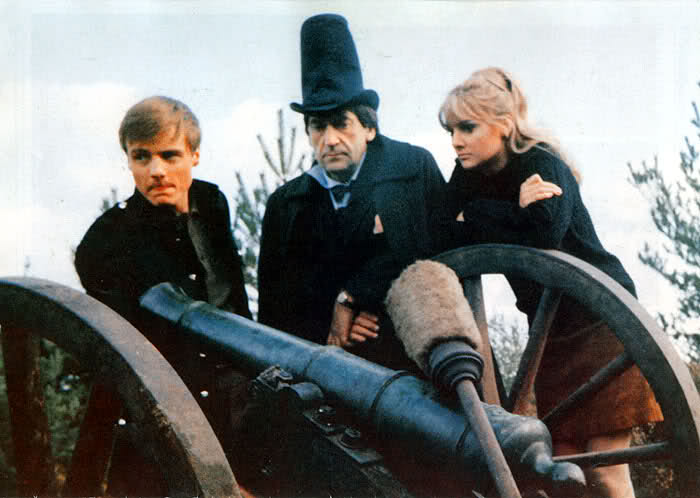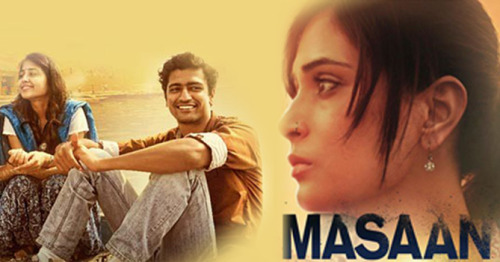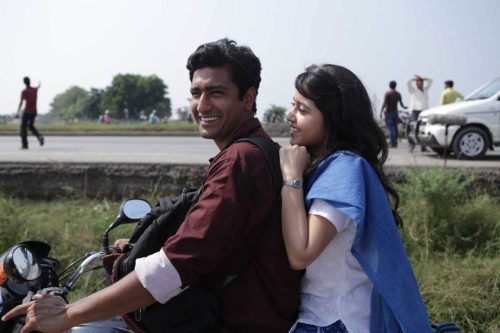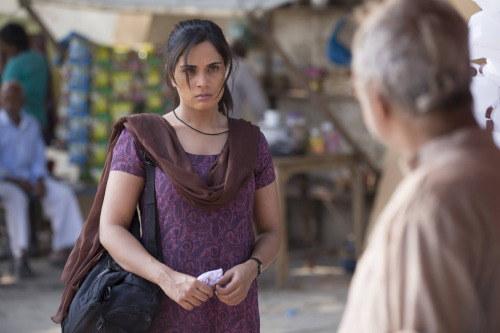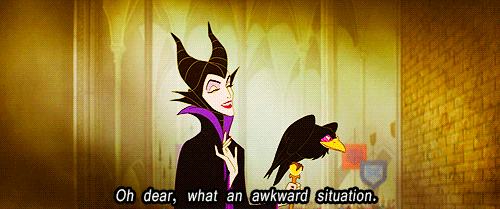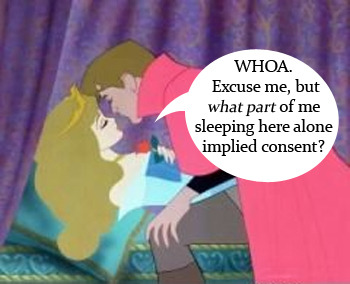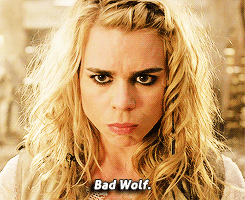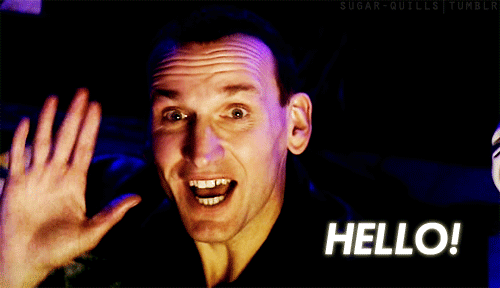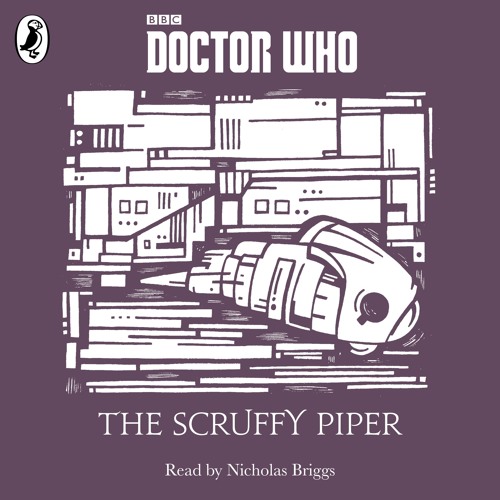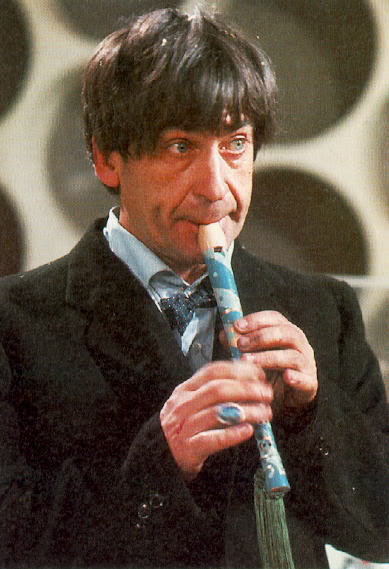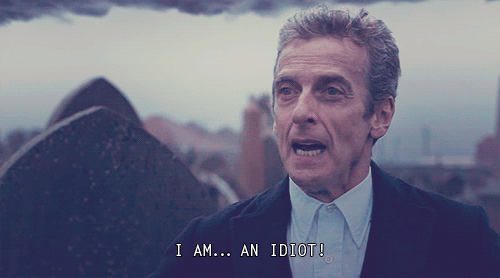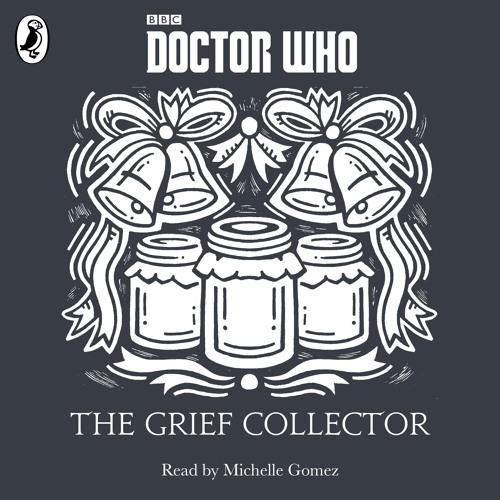Continuing after a brief-ish hiatus with my snarky reviews of the horrendously sexist 'Plain Jane' makeover show, here's part one of the second episode! (Many topics will be repeating themselves, so the reviews of the remaining episodes of season 1 will probably be a bit shorter than the posts about the first episode).
- Her apartment and room are messy, so she must be an 'unfeminine Plain Jane' without love in her life ('This is...revolting!!')
- She is forced to 'face her fears', again in an unnecessary and ridiculous way which also teaches women to totally choose the wrong priorities in life ('If you can do this, Jonathan is nothing')
 |
| Viewers are able to get a kick again out of watching a frightened woman having no control over her actions! |
- She is told to change her whole clothing style in order to attract the guy. As always, sexiness (and self-objectification, because she obviously doesn't do it for her) is the key.
- She is told that she must learn to flirt and entertain men. Bonus of having to deal with the racism of the guys in a speed-dating totes healthy class ('I've never dated an Asian girl before')
- Makeover, haircut very much included (because these girls always need a haircut or extensions, nothing's ever fine to begin with).
- The pressure of risking losing her 'friendship' with the guy unless she's deemed 'feminine' and 'beautiful' enough for him to consider her for a romantic relationship. Final decision's his, as usual, with her risking losing him both as a friend and partner if her make-over isn't successful (also featuring the simplistic idea that people in a romantic relationship are the complete opposite of 'friends', as if both things weren't compatible or something - As a demisexual, huge pet peeve here).
 |
| Totally judging you here. Male entitlement TM |
- Sappy, hypocritical brainwashed 'romantic' ending.
- And the stylist is the same obnoxious sexist individual we have come to love in episode 1.
- And again, we don't really care about her job, studies or personality. As long as she gets a sexy makeover and a man, she's complete in our eyes, right?
The episode finally begins after this fascinating sneak-peek full of the same boring sexism:
Like we said, this episode's protagonist victim is a young girl called Jona who is dressed casually, and obviously is going to pay for it in a moment (just...the nerve of it!). This time, she does mention something about her actual life (she's an art student), but don't worry, that's not going to come up again. Not important.
Here starts the 'control freak' part. Jona is stressed and 'really needs' the stylist's help 'in all different ways' because she wants to be 'in control of everything', and we're not talking about gender neutral perfectionism, overthinking or OCD issues here. This episode makes it quite clear that if you're a woman, making plans about your life and generally having agency about your actions totally stresses you out, makes you lack any spontaneity and transforms you into a crazy control freak with - look for it - no love in your life! Because women are apparently really delicate and volatile (crazy?) people who get stressed out easily if they're trying to make plans about their life or be in control of their decisions! Jona says, in a grief-ridden tone, that 'it always stresses me out so much [being in control], I always have to plan and if I don't I freak out. That's why I never take any risks in life (risks=asking a boy out, don't think it's deeper stuff), and that really holds me back'. And this sentence is followed by, I kid ye not, this:
 |
| Decision making and planning stresses women out so much! |
Way to be subtle about your sexist bullshit stereotypes, Plain Jane! And we're just started on the episode!
 |
| Cut out the horseshit already, Plain Jane |
Jona's lack of spontaneity is also reflected on her wardrobe - She isn't catering to the menz enough because she 'likes to play it safe'! In this edition of 'Are we really living in the 21st Century? Aka Is this sexist bullshit for real?' we learn that wearing T-shirts is unfeminine (yes, really) and earns you a dramatic 'Oh nooo!' from the stylist.
 |
| She's so ashamed of owning multiple T-shirts - What is wrong with this world?? |
Interesting that both Jona and Cristen need to justify their casual, 'unfeminine' choice of clothes. Cristen said she 'dressed like a guy', Jona says she wants to ‘play it safe’ with her clothing as well as with her life (but that she wishes she could be more spontaneous – and ergo, supposedly also more ‘womanly’ and 'sexier', I guess). And so, the stylist gives us the first display of her despair when shown Jona's choice of clothes. So basically, one of the aims of this show is to attack women who dress casually, equating them to women who are shy, self-conscious, repressed and in need of spontaneity in their lives, or who only hang out with guys and, therefore, friendzone them because the men are not sufficiently allured by them and mistake them for their bros (eyeroll). All of them incapable of getting their crush because of their wardrobe choices. The stylist of course decides that 'She needs the help, that's for sure'.
-Discussion-rant: And we also have to be careful about the 'I think she looks great without X' sentence, because many entitled dudebros are appropriating that initially empowering phrase that intended to go against the need to wear X (a clothing style, heels, make-up, you name it) in order to be 'attractive', turning it into another controlling form of entitlement ('you look better without make-up', for example). That being said, I actually do think Jona looks lovely in all her natural casual glory. Let no obnoxious fashionista/man/woman/anyone tell you you don’t look great like this if you like to dress in a similar way, or if you prefer not to wear make-up or whatever. And same if you do like to wear make-up/less casual clothes/whatever. You don't need to change your style to please anyone!
Enter the crush, aka Entitled Boy. Like what happened with Cristen, Jona remarks that her crush is 'cute, tall, sweet' also focusing on his appearance. But also 'extremely smart'. Is Jona smart? We don't care. In this show, the fact that she mentioned that she's a student and what she studies is already like really subversive, so it's not like we can hope for more (also, instead of doing some studying or something, what Jona actually does every night is stalking Entitled Boy's Facebook and squeeing about how cute he is).
Enter the 'friends' whose turn is to bash Jona's character. Entitled Boy gets all the positive traits and is never criticized, but what do they choose to say about Jona?: She has fear of failure and is a control freak. Basically all that is highlighted are ‘negative’ aspects of her, plus her unfeminine style, all in need of a sexy, 'confident' makeover. We never learn that these girls are smart or find out about their personality in a positive way, and we don't get the opposite either, where are the shy and awkward guys who wants to ask a girl out? (that wouldn't be 'manly' enough!).

Jona goes out to meet her future stylist and the camera slowly shows us her entire outfit and appearance from shoes to hair in an obviously disapproving way - Because I suppose that wearing trainers, sweatpants and her hair in a messy bunned ponytail is so unfeminine, jeesh. The stylist scathingly asks if she's been on a run, and when Jona tells her that she just finds that kind of clothing comfy, she freaks out. Apparently, it's only acceptable to wear that kind of 'casual wear' if you've just gone on a run. The fact that it's 'comfy' isn't a valid option.
The clothing bashing this show so loves continues, as the stylist exclaims: 'You came to meet your fairy godmother [facepalm] who's going to help you with style and fashion wearing sweats with ink splashed all over it. You're winding me up?' . Because ‘casual wear’ goes always hand in hand with ‘unkempt, dirty and messy’, apart from 'unfeminine'. Obviously.
 |
| Logic, logic everywhere here! |
'Can you take your hair down, show me your hair a bit?' I'm evaluating you here! Also, wearing your hair in a comfy way (messy updos and the like) is not a good move, who cares if you're comfy and/or if you like to wear your hair that way. Apparently, you're not making an effort, and it's every woman's job to keep their hair and body attractive to the menz! Messy updos? Updos, period? Ewwww.
'When was the last time you washed it?' Again - Women who wear casual clothing apparently wear it splashed with ink and don't wash their hair! ‘Unfeminine’ women who don't wear ‘sexy’ clothing for the men are dirty, unkempt unhygienic and wear stained clothing! SUUUUURE. Why would a woman be interested in keeping herself clean unless she was making herself up to be seen by a man? The thought of it!
Interesting that she actually asks a bit about her personality! But her question is full of offensive sexist stereotypes already. She's so messed-up because she likes casual-wear and doesn't have a guy, so, ‘are you the shy girl?’ ‘The nerdy girl?’ (thanks for saying being nerdy is a wrong thing if you’re a woman, that’s another famous stereotype I so needed to hear. Plus you obviously don’t know what being ‘nerdy’ even means! Being a freak, I assume you're assuming).
So this 'personality' question has helped viewers to arrive to this wonderful stereotype: The girls who focus on school must be shy girls with dirty hair and unfeminine clothes, with the optional addition of some parents who prevent you from dating.
 |
| Professor Badass McGonagall is having none of your crap, Plain Jane |
'Let's talk about your love-life. How many dates have you been on in the past year?' Didn't talk so long about her personality there, even in order to create ridiculous sexist stereotypes (plus she actually didn't have any time to tell you anything about her personality, but anyway). OK, so why does a woman have to present you a list of a sufficient number of dates for you to consider her worthy? Maybe a woman's just not interested in dating until a specific moment? That doesn’t mean she has to be a "hopeless shy case of an unfeminine woman"! And maybe another hypothetical woman isn't interested in dating now, or ever? Maybe her sexual orientation is also different? Maybe she's demi or asexual? But this show's sexist narrow-mindedness obviously doesn't take such things into account. The horror!
It is concluded that Jona is shy and unkempt because she likes to study and doesn't go on a sufficient number of dates, so the stylist takes it unto herself to be a 'fairy godmother' and help her poor charge out by arranging the blind date with Entitled Boy. Again, this is a process in which the supposed 'confident-to-be' girl doesn't have any agency at all.
 |
| Yeah, not at all. |
And after the very logical fact that the guys always accept these blind dates from complete strangers calling (I guess they want us to tell us that 'manly, macho' men are always happy to date anyone, and who cares about who she is...as long as she's pretty, of course), we continue glorifying Entitled Boy. Jona has fear of failure, panics a lot, yadda, yadda, yadda, but 'Everybody loves Jonathan. Very polite and very debonnair.' Classy, sweet, talkative (and Jona's 'friends' remark that he's great for Jona in that respect because she's 'such a great listener'. Guess we all know who's going to do all the talking post-makeover!). All good things, many about his personality. As usual, he doesn't need to change a thing about himself - Including the fact that his body type is probably what people could call 'plus size' if he were a woman. But even though societal fatphobia and body shaming does affect men as well, men are generally allowed to be thicker or bigger without the extreme societal repercusions women face. Hell, the cliché of the 'bigger guy who is entitled to the gorgeous thin voluptuous girl and if she friendzones him she's a self-centred shallow b*tch' is still going strong!
 |
| But I'm not privileged at all, you know? |
Dubious process of stalking Entitled Boy, and teaching women the 'feminine' methods of being indirect at everything. Also, this show repeteadly teaches us that communication, consent and an equal footing in a relatioship are not goals to strive for, not at all.
 |
| This is the healthy way to approach someone! |
He's in the library, and apparently that doesn't put his attractiveness or masculinity at risk! Oh my gods, and he isn’t portrayed as ‘shy’ or ‘unkempt’ because of it! But they've more than implied that the fact that Jona focuses on her studies is more bad than good. That a woman who likes to study is probably a shy nerd with dirty clothes and hair, who doesn't have love in her life and is miserable about it. Not a double standard here, oh no, my Precious.
 |
| "Double standard? I don't see any double-" |
Jona's personality, the fact that she prefers to be in control of everything she can, is going to have to change, primarily because that makes her shy about asking Entitled Boy out, for some (oh so logical) reason. I can also interpret this as a criticism of women trying to be in control of things - they are often called 'paranoid', ‘bossy’, ‘control freaks’ (a bit like the bashing Clara Oswald in Doctor Who receives during season 7.5 and 8, actually :/. Thankfully, season 9 appeased me for season 7/8’s sexism on this respect)- And they're also 'in need to loosen up' because of it, while men are usually encouraged to be in full control of their lives.
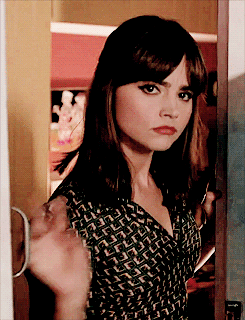 |
| Clara Oswald has her eyes on you, sexist Plain Jane! |
'With no guts there's no glory'. Apart from the ridiculous idea that people (and especially 'manly' men) somehow have to prove to the world that they're 'tough' and 'brave' and 'cool' - and that doesn't involve interesting, deep stuff, but mainly being reckless and using bravado in the wrong situations-, there's too much meddling with people's personality here (some people like taking more risks than others, and no one should be forced). It reminds me of something I HATE, when people try to change an introvert into an extrovert. That really doesn't work by forcing them to do things out of their personality league. Being out of your comfort zone isn't always good or beneficial. And forcing someone to do that usually demonstrates lack of empathy, narrow-mindedness and controlling urges – Actually, while Jona is being labelled as the ‘control freak’ for wanting to be in control of her life, the stylist’s the one who should be called that, because her job revolves around controlling and changing other women’s lives all the time!
 |
| Oh, snap! |
Ah, the
phobia torture experience! Oh, how we've missed it! Jona is now going to be doing outdoors skydiving in order to let the control out of her life and summon her will to face her (arranged) date! So logical! So healthy! I'd like to know, what's exactly the link between not being a fan of high-excitement sports
and being apprehensive about asking someone out? Like I said at the beginning of this post, methinks the aim of this stupid
'first step in your transformation', as the stylist puts it, is just to add a scene where people can get a kick out of seeing a woman being frightened, freaking out and having no control over her decisions.
 |
| Jona ty to resist with no luck the first step in her transformation: An unnecessary dangerous sports session! |
You know,
you really need to stop treating women like weak, self-conscious, paranoid beings who are not capable of making a decision or summoning their will to do something, unless they've been forced to face their biggest fear before. Also, some people are shier than others, and you know, we should also respect that, respect that some people have more difficulty at some situations and need more time than others. And some people don't like high-risk or high-excitement sports, and that doesn't make them less able to face situations in life. Forcing shouldn't be an option in any case, for anyone, unless the situation were critical and really asked for it. Which is
not the case here. Also, I find it fascinating that the stylist gets offended and goes
'you didn't call me so that I would just put some mascara and lipstick on you'...like, that's one of the main parts of the term 'makeover'? Forcing make-up (and other things) on women in order to attract a man?
'This is the first step in your transformation (...) not taking risks is holding you back. Not just with boys, forget about Jonathan for a second (but only a second!), but with life! If you can do this, Jonathan is nothing. (so it's not really about life, the main thing is Entitled Boy)'
So she basically has to
jump off a plane in order to summon her courage to ask Entitled Boy out.
Doesn’t anyone else think this is utterly ridiculous? Also,
she isn’t even asking him out, she’s attending an already arranged blind date with him! For heaven's sake!
 |
| I know you do! Me too. |
'I met you a few hours ago and now you're making me jump off a plane!' And you're still not running away, Jona! How many red flags do you need?
The lack of logic and empathy in this scene is simply outstanding. We get the stylist saying things such as
'No tears! Smiles' (yeah, someone facing a phobia needlessly must be so happy) and
'This is the biggest thing she's ever done' (and it's oh so necessary). In the plane, Jona complains about being nauseous and not being able to breath well, and the guys in the plane are really patronizing, rude and actually
harass her - We get sentences such as
‘I'll give you a free t-shirt if you pee your pants’. Where the freaking hell is these guys' professionalism??
 |
| WTF |
While Jona is literally screaming her head off at 12,500 feet above the ground, the stylist really seems to be enjoying having Jona experiencing 'no control'.
'She must so be really freaking out right now'.
This is no way to 'conquer your fears', you know. Nor is it a necessary or logical moment to 'face your phobia'.
You face your fear when you must, and when it's necessary contextually. This is simply another way for the sexist viewers to have fun watching scared women without any control over their decisions.
 |
| Smirking guys vs terrified girl. I find this scene pretty disturbing. |
Also, Jona's biggest fear, according to the stylist, is not 'fear of heights', but 'not having control'. So the cure for that is basically
non-consent, which is what's happening here, and it's actually potentially triggering and very problematic, because
what we get is a terrified Jona yelling 'No!' while the guys manhandle and drag her out of and off the plane (and the stylist saying
'She's conquering her fears, this is it!'). Which is totally not cool, because if this is OK, then where do these people put the line in other non-consent issues? Does she need to get sexually assaulted next in order to get rid of her need to be always in control?? Also,
Jona ends up 'enjoying' this, despite having been forced to do it, which is a twisted argument that also comes up in sexual assault issues all the time, for example.
 |
| For once, Spock and Bones both agree that there are many things that are very much not OK with this scene |
 |
| 'Yes! She did it!' Like, did she have any other choice?? |
And suddenly she enjoys it and finds meaning in her life thanks to having been forced to jump off a plane (
'That was aaaaaawesome!!! I feel great! Thank you for making me do it!'). Then the stylist remarks that she just risked her life, so that makes the date with Entitled Boy
'not such a big deal'. All the dazzling logic again. The script continues to surprise with its originality...and problematic issues.
 |
| I found meaning and bravery in my life thanks to non-consent. Now I'm ready to go on an arranged date! |
So yeah, we all need to go fall off some planes after getting harassed by some dudes in order to feel like asking someone on a date is not a big deal.
Part 2 coming soon...ish









